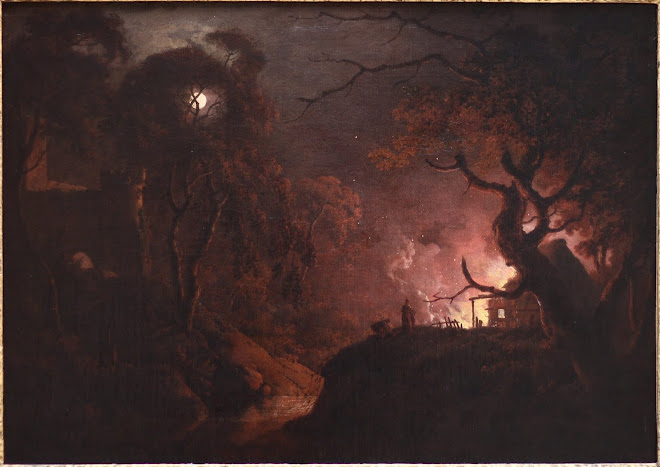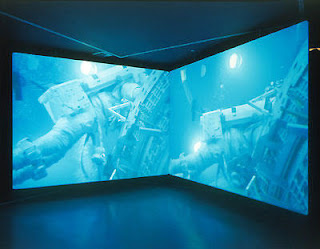POINTS & OBJECTIVES:
- Film relationship to Painting
- Cinematography
- Is scale important?
- Post Apocalyptic landscape - How is it imagined? Is there a narrative?
- Narrative and Anti-Narrative
- Could I create a fictional environment in my immediate space?
SUGGESTED RELATED ARTISTS:
Steve McQueen
Filmed in New York City, Drumroll (22 min., 4 sec., 1998; color-video projection with sound) beautifully combines the artist’s interest in performance art, improvisation, music, the tradition of film and the cinematic experience. Three cameras mounted inside of a barrel offer spinning views of New York City as the artist pushes the barrel along the streets and sidewalks of Manhattan. The viewer listens to the cacophony of the city interrupted occasionally by the voice of the artist.
His 2008 film Hunger, about the 1981 Irish hunger strike, premiered at the 2008 Cannes Film Festival. McQueen received the Caméra d'Or (first-time director) Award at Cannes
The Wilson Twins
Projected onto four screens, the scenes shift subtly in pace and orientation, from close-up to distant shots and from vertical to horizontal. Such contrasts are typical in the Wilsons' formal repertoire. The underlying narrative is a tale of utopian idealism, science, and Communism gone awry, yielding only unfulfilled expectations and a program that languishes in economic disarray.
Jane and Louise Wilson. Stasi City , (still) (1997).
Cormac McCarthy (review by Adam Mars-Jones for The Guardian)
A man and his young son make their slow way across a blasted landscape towards the sea. Theirs is a rodent life of hiding and scavenging. They follow the road, but sleep out of sight of it whenever they can. Other human beings have nothing to offer but cruelty and danger. The father creeps out of the boy's earshot at night when he has a coughing fit.
For all practical purposes, the world came to an end some years before in what was presumably a nuclear war, although those words are not used. The dead are unburied and thousands of mummified corpses can be seen still stuck in the tar of the roads that melted round them as they tried to escape.
The boy was not yet born then, though he was well on the way. It isn't certain that he remembers his mother. Now the sun hardly shows its face and nothing grows. The man has to explain the phrase 'as the crow flies' to his son, in the absence of crows or anything else that flies.
Without vitamin D in pill form, the boy will get rickets. There's rarely a roof over his head, so he's out in all weathers, but the sun no longer plays its part in the old bargain of outdoor lives and healthy bones. The only food to be had for the dwindling bands of survivors is tinned - and miraculously undiscovered by all the other scavengers - or else human.
The Road isn't a fable, or a prophesy, or even a tract in the manner of Shute's On the Beach. It's a thought and feeling experiment, bleak, exhilarating (in fact, endurable) only because of its integrity, its wholeness of seeing. The man pushing his shopping cart towards nothing hopeful, boxing the compass of despair, makes Brecht's Mother Courage seem downright fortunate in the choices she must make.





